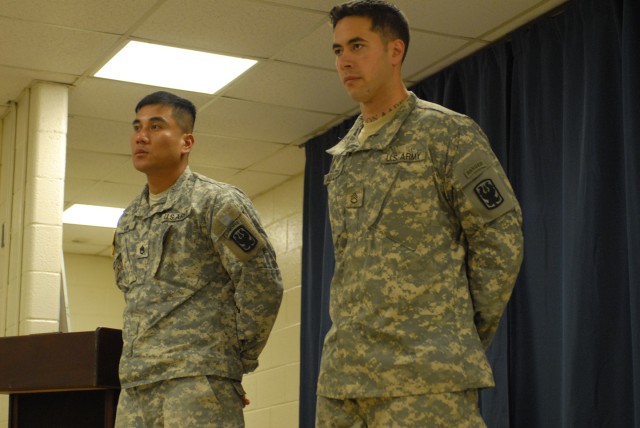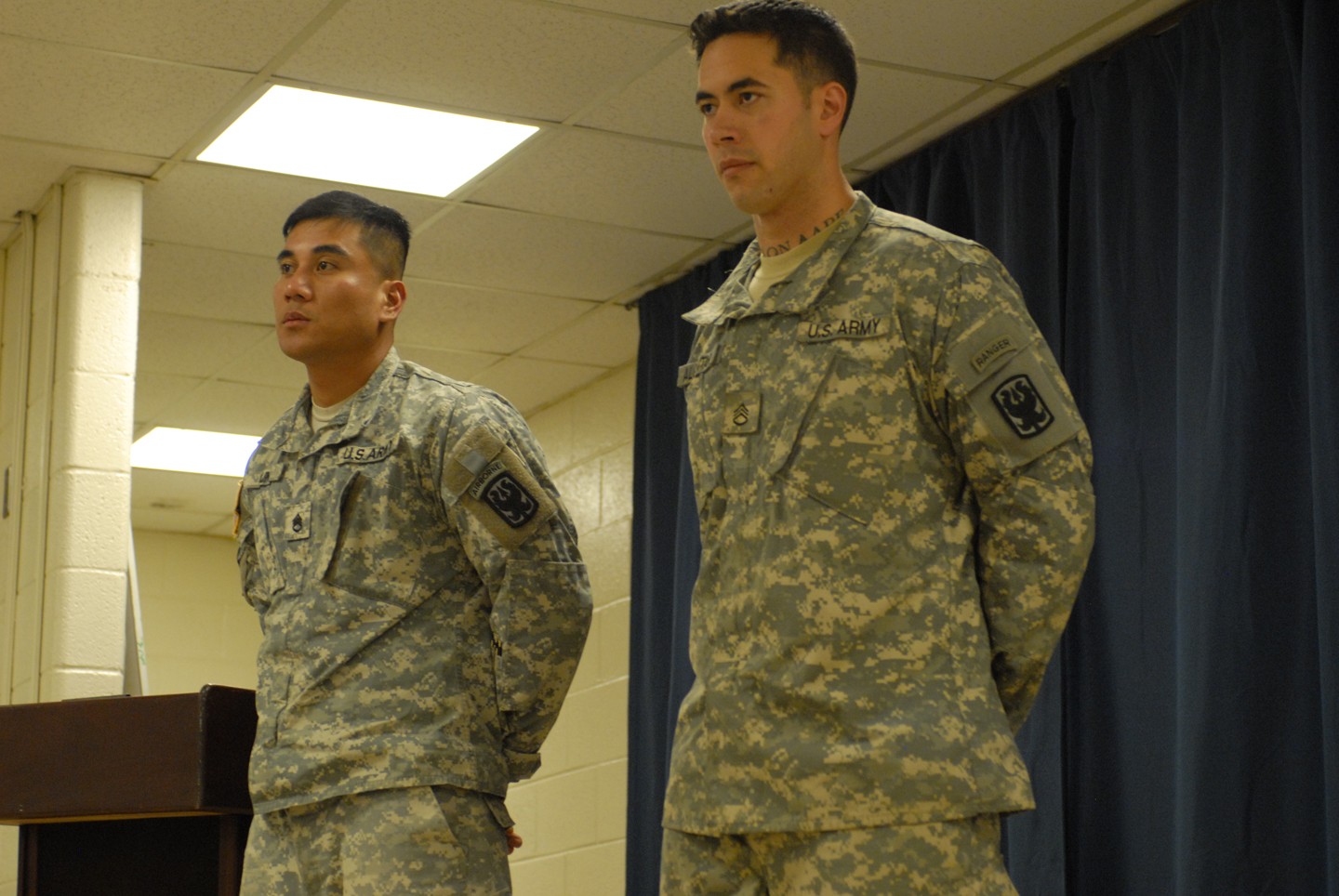
FORT BENNING, Ga. - Two Soldiers from the platoon depicted in Restrepo delivered some motivation to a basic training unit in its fourth week on Sand Hill.
Staff Sgts. Elliott Alcantara and Teodoro Buno, who appeared in the Oscar-nominated documentary, spoke to A Company, 2nd Battalion, 47th Infantry Regiment, during its Warrior Ethos class March 8. The basic trainees watched the 90-minute film and then took part in a question-and-answer session about the importance of camaraderie and what they can expect to see in war zones. The two men also discussed the hardships and impact a separation can have on relationships back home.
Restrepo chronicles the deployment of Vicenza, Italy-based 2nd Platoon, B Company, 2nd Battalion, 503rd Infantry Regiment (Airborne), in northeast Afghanistan's rugged Korengal Valley between May 2007 and August 2008. The movie focuses on a remote 15-man outpost called Restrepo, named after a platoon medic who was killed in action. It was considered among the most dangerous postings in the U.S. military.
"We want to give them more of a perspective, but we're definitely not trying to scare 'em," said Alcantara, now the operations sergeant for the Infantry Basic Officer Leader Course's Headquarters and Headquarters Company. "I'm sure they watched it and thought, 'Oh (man).' We don't want them to feel that way."
Buno, an Airborne School instructor at Fort Benning, said he'd never talked about Afghanistan in a large setting before but occasionally gets stopped by students at 1st Battalion (Airborne), 507th Parachute Infantry Regiment. He hoped to inspire the new Soldiers and share his experiences.
"It's not always a negative, but I want to let them know it's real - it's not a game," he said. "Once they sign those papers, they have to realize what their job is. When they actually do deploy, hopefully they'll know what to expect and be a little more prepared."
Most of the basic trainees are likely to land in Afghanistan within the next year to 18 months, said 1st Lt. Jose Elizabeth, the company's executive officer. He said any knowledge they can get from seasoned Soldiers could prove invaluable.
Alcantara deployed twice before going to the Korengal Valley - neither compared to the amount of enemy contact, isolation from the rest of the world and austere living conditions he found there, he said.
"The outpost was smaller than the classroom we're in now," he said. "That was an extreme environment. Most deployments are not like that. It was pretty much as bad as it can get as far as living conditions."
The Soldiers ate meals-ready-to-eat every day, he said. Occasionally, a chopper would bring hamburgers, Gatorade and snacks such as Pop-Tarts or cereal. But they didn't have a refrigerator.
There was no Internet or telephones, so the platoon had little contact with family and friends, Buno said.
"All the small things we take for granted, we had none of that," he said.
The Soldiers pointed to Operation Rock Avalanche as the toughest stretch - both physically and emotionally - in the deployment. The battle went on for six days and Taliban fighters got close enough to actually put their hands on U.S. Soldiers, the platoon commander said in the film.
The Restrepo Soldiers served in the same company as Army paratrooper Salvatore Giunta, who earned the Medal of Honor for his actions in the offensive.
"You're going to have blood, sweat and tears throughout your career," Buno told the basic trainees. "You have a duty to yourself, your buddies to the left and right, and to your country."
For Alcantara, as tough as the fight was, more good came out of Afghanistan than bad, he said.
"The more 'suck' you go through, the closer you become as a unit," he said. "I made friendships that have continued on, no matter how much time has passed. ... For me, (the film) was like a blink of an eye as far as what we went through and how much we experienced, although they did a great job capturing the moment."
A Company just entered the White Phase of basic training. Graduation is in mid-April.

Social Sharing